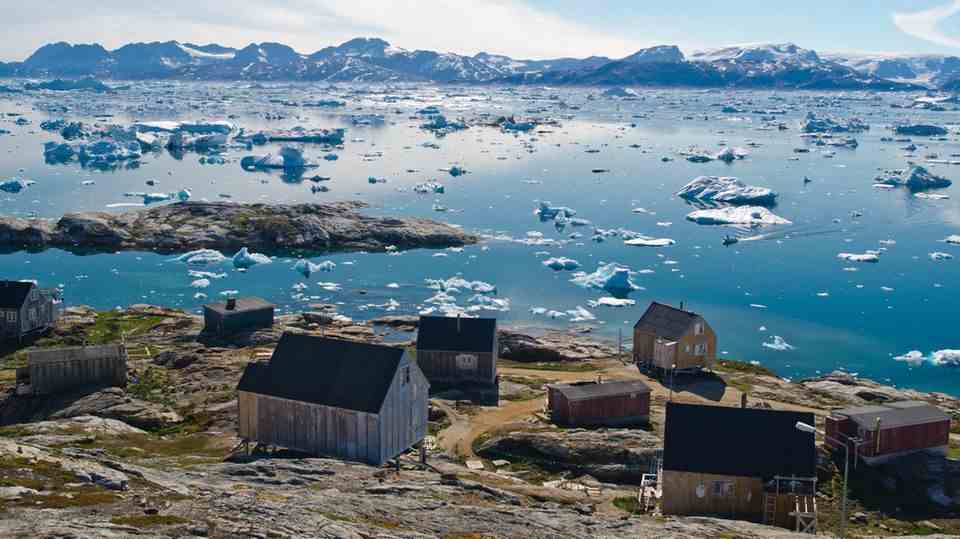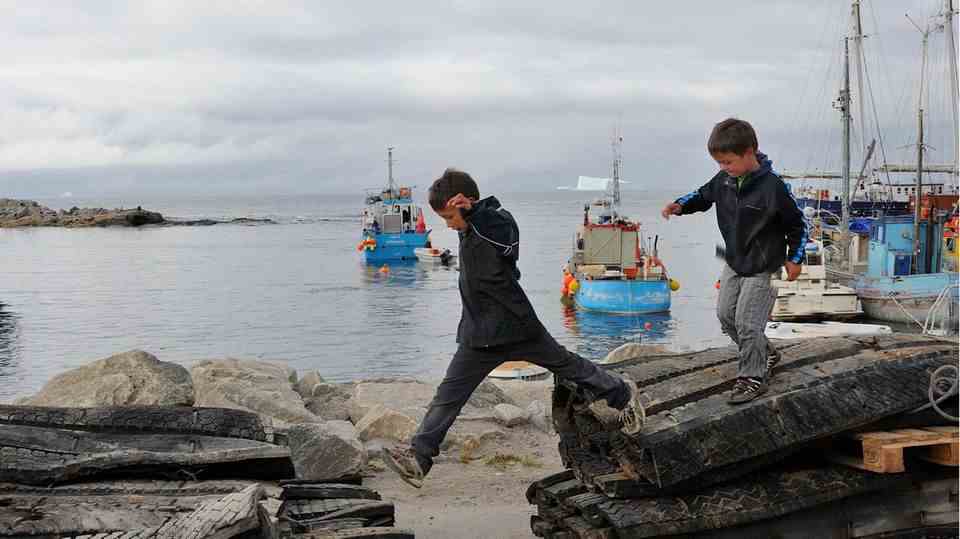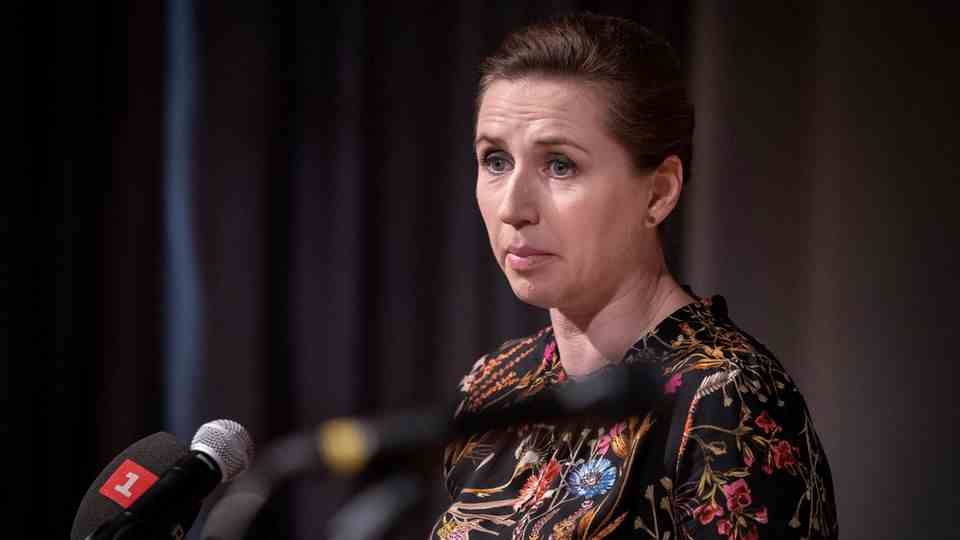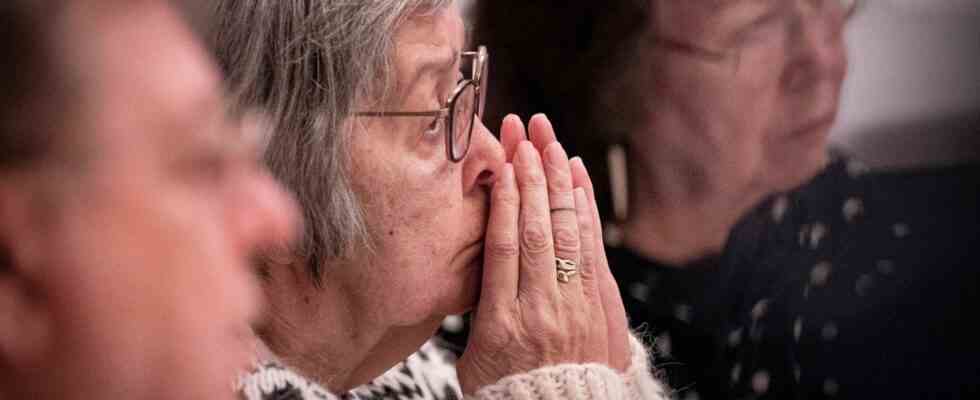They have waited more than 70 years for an apology from Denmark: the Inuit from Greenland, who were separated from their families as children and abducted to the mainland. The last six survivors are still suffering from the consequences of this “experiment”.
76-year-old Kristine Heinesen still vividly remembers the day she had to leave her homeland. At that time she was five years old and her brothers rowed her in a boat onto a large ship, on which the girl then traveled to Denmark. “We got further and further apart and it became clear that I wasn’t going to come back,” she tells the BBC.
Together with 21 other Inuit between the ages of five and eight, she was initially placed in a nursing home. The children became part of a social experiment in 1953, an agreement between the governments of Denmark and Greenland. The island, now an autonomous region of the Danish Kingdom, was then a Danish colony.
Denmark wanted to promote development of Greenland
In the 1950s, Denmark set itself the goal of promoting the development of Greenland. Because of the bad living conditions on the island – poverty, hardly any infrastructure, the spread of tuberculosis – the Danish government came under increasing pressure to act.
“The aim was to adapt the Greenlanders’ lifestyle to the Danish model,” explains Ebbe Volquardsen, professor of cultural history at the University of Greenland.BBC“. The Danish language was considered the most important tool for this. That is why 22 Inuit children, who the government classified as having above-average intelligence, were to spend several months in Copenhagen. They were to learn the language and be brought up according to Western values.
The young Greenlanders would then return as a sort of elite who would spread Danish culture throughout the colony and bridge the gap between indigenous and modern ways of life. According to a report by the “Guardians“that a better life was waiting for the children in Copenhagen. They never expected to never see their sons and daughters again.

A small Inuit settlement on Greenland.
© Patrick Pleul / Picture Alliance
No contact with their own culture
In Denmark, the Inuit were not allowed to have contact with their families. Helene Thiesen, now 76, describes the time as a nightmare. The children suffered enormously from homesickness. “When one of us started to sob, everyone else cried too,” she says in a “kind“post. After a year and a half, 16 children were allowed to go back to Greenland, the other six were put up for adoption without the knowledge of the parents.
Even the children who returned were not allowed to live with their relatives. In a home run by the Danish Red Cross and the NGO Red Barnet, “the elite should keep to themselves”, as the “The New Zurich Times” reported. They were not allowed to have contact with other Greenlandic children, nor to speak their mother tongue. Parents were allowed to visit once a week.
Inuit lost their identity in Denmark
Gabriel Schmidt, now 77, did not see his biological father again until he was a teenager. By then he had forgotten the Greenlandic language and could no longer converse with his father. “It was very sad,” he recalled in the BBC article. The children lost touch with their original culture and became a marginalized group on the island, marginalized in their own homeland. The “Neue Zürcher Zeitung” calls it an “educational experiment that failed miserably”.

The “elite” were not allowed to have contact with other Inuit children.
© Christophe Boisvieux / Imago Images
The consequences that the children suffered were serious. A study by the Danish government showed that half of them had struggled with mental health problems and alcoholism at some point in their lives. Most died before they reached the age of 50.
Denmark apologizes after 70 years
According to lawyer Mads Pramming, representing the six Greenlanders, the surviving Inuit are convinced that their fellow sufferers died of grief. They only found out that they were part of an experiment in the late 1990s, when journalists took up the story.
“I couldn’t stop crying when I found out about the attempt,” admits Helene Thiesen in the “Arte” post. For a long time, however, the Danish government refused to apologize, saying the matter was a thing of the past. Mette Frederiksen, now Prime Minister of Denmark, said loudly “Deutschlandfunk” already in 2009 about a “black chapter of our history” that needs to be worked up.
“It was heartless”
Another 13 years passed before that happened. Last Wednesday, the politician issued an official apology to the six Inuit at a ceremony on behalf of the government. “What you experienced was terrible. It was inhuman. It was unfair. And it was heartless,” the Guardian quoted the 44-year-old as saying. In addition, those affected each received financial compensation equivalent to 33,600 euros.

Prime Minister Mette Frederiksen personally apologized to the six Greenlanders on Wednesday.
© Liselotte Sabroe / Picture Alliance
Lawyer Mads Pramming stresses that the experiment violated the human rights of the Inuit. Deutschlandfunk describes the Greenlanders as “rootless people with broken biographies”. Nevertheless, Pramming sees the financial compensation and the public apology as a great success – as do the six Inuit.
Swell: “kind“, “BBC“, “Deutschlandfunk“, “The Guardians“, “The New Zurich Times“

